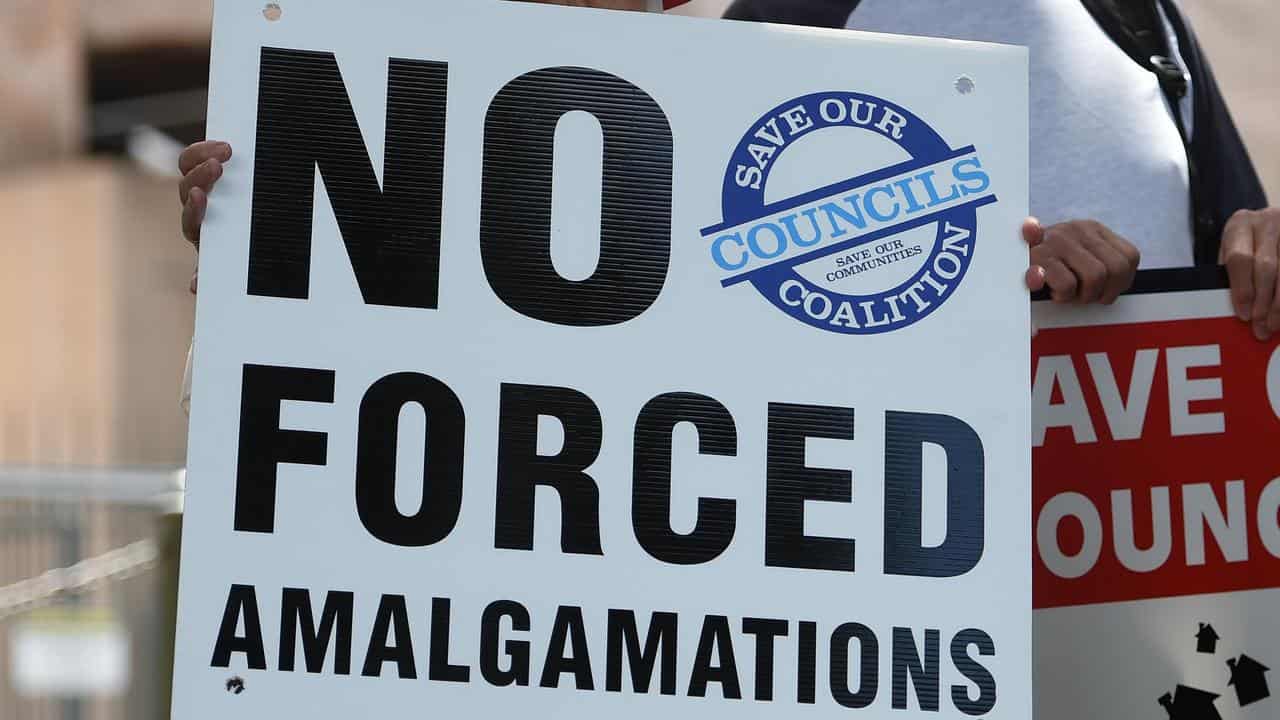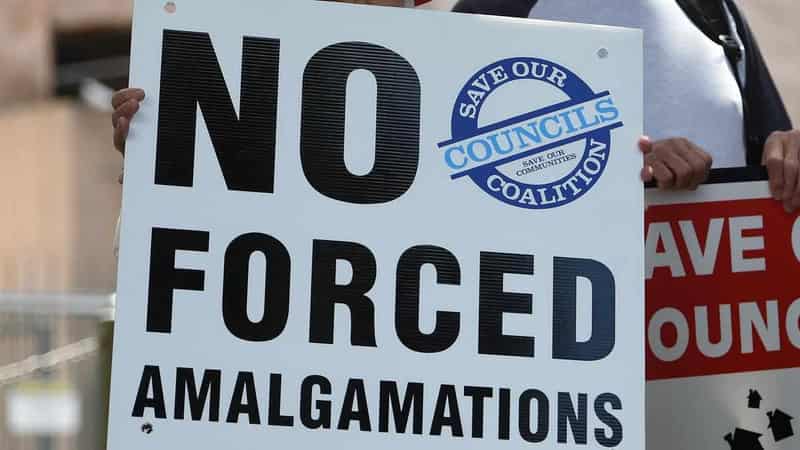
Unwinding fiercely opposed council mergers have been made virtually impossible by a decision to dump the full cost on local communities, councils say.
The 2016-era forced mergers controversially married 44 local governments with their neighbours while plans to go further were stopped by court challenges.
The then-coalition government's bulldozer approach has since been studied as an example of how not to tackle hard policy.
While opposed to mergers in opposition and conceding now they were a failed and expensive experiment, the NSW Labor government on Tuesday introduced a bill to parliament ensuring it would not foot the bill for demergers.
It comes after Sydney's Inner West Council estimated a 10-year plan to revert to Ashfield, Leichhardt and Marrickville councils would cost between $178 million and $190 million.
Labor's plans were disappointing and made de-amalgamations "virtually impossible", the peak body for NSW councils said.
"Our communities did not want these amalgamations which were foisted on them, yet now they are being expected to pay to return to the former status quo," Local Government NSW president Darriea Turley said on Tuesday.
"This is sleight of hand by the new state government which knows that councils do not have the tens of millions of dollars required to de-amalgamate."
The mergers were an expensive mess that its creator - the NSW government - should be cleaning up, Greens local government spokeswoman Amanda Cohn said.
"Instead, this proposed legislation takes councils one step forward legally but two steps back because of the financial burden it poses for them to fund their own de-amalgamation," she said.
Among the 2.1 million people affected by mergers, ratepayers in the former Dubbo and Wellington council areas overwhelmingly opposed amalgamation in 2016.
But the mayor of the successor council said demerger would be "incredibly expensive".
"I didn't agree at the time but I'd be loathe to put that cost on the community," Dubbo Regional Council mayor and Regional Cities NSW chair Mathew Dickerson told AAP
He said there remained an argument for tidying up boundaries across the state, however, citing Dubbo council serving villages that were 100km away from town but 40km from Orange.
"Their centre of influence is not Dubbo," Cr Dickerson said.
The proposed new laws would require councils to develop upfront a robust business case to demerge, consult their community and then seek ministerial permission for a local referendum.
The business case must consider the financial impacts and the council's ability to fund de-amalgamation
Local Government Minister Ron Hoenig said the new laws enshrined local democracy in the decision-making process so councils and communities were fully informed of the financial and other implications of de-amalgamation.
"The forced amalgamation of NSW councils was a failed and expensive experiment," he said.
“While the NSW government strongly supports a clear process for councils and communities to exercise their democratic right to pursue de-amalgamation, we also have to be realistic about some of the challenges this brings."
The bill also provides for transition arrangements for councils whose demergers already have ministerial permission.









